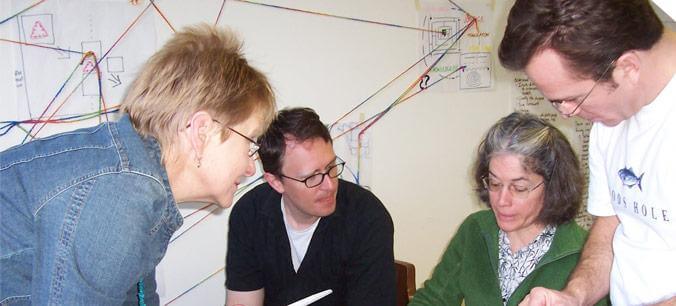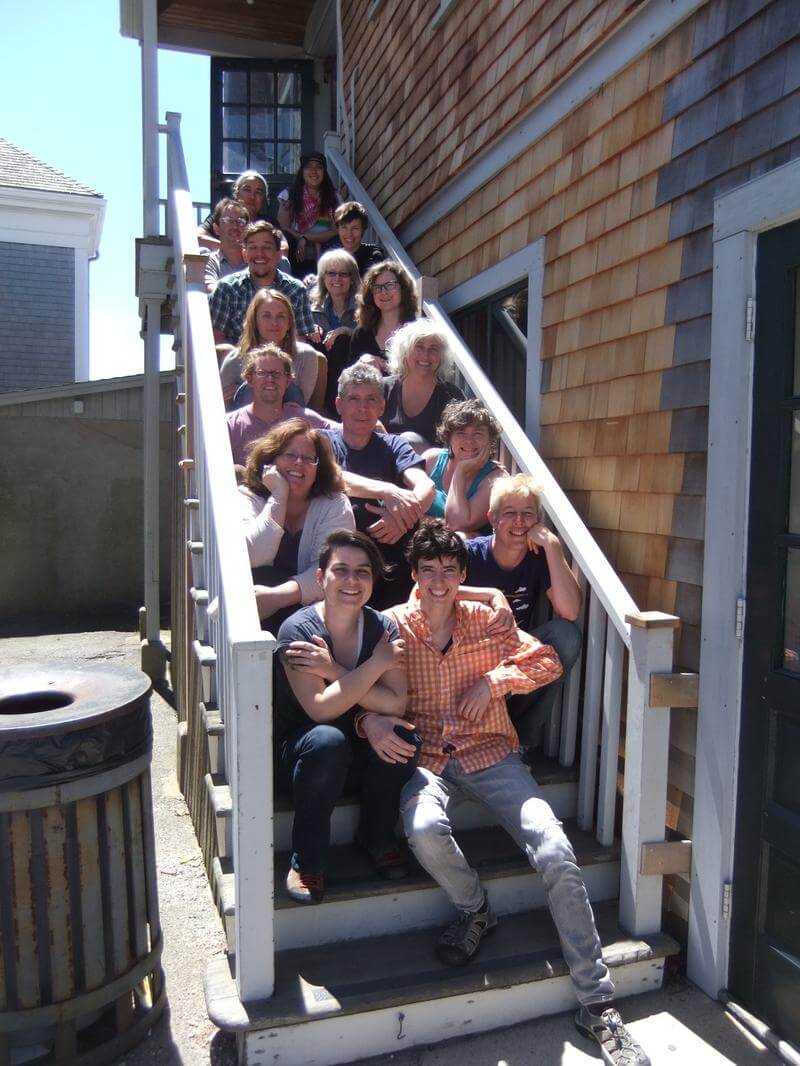Connecting-Probing-Reflecting Spaces: The New England Workshop on Science and Social Change (NewSSC)
Peter Taylor, UMass BostonBoston 2017: Pedagogy

“Most workshops are dysfunctional-this one wasn't!” read one evaluation from the first NewSSC workshop in 2004. With the aim of “fostering collaboration among those who teach, study, and engage with the public about scientific developments and social change,” these experimental, interaction-intensive, interdisciplinary, four-day workshops have continued annually, with additional workshops in Portugal (sicw.wikispaces.com/newssc). The evolving workshop processes have informed shorter workshops in four countries, Project-Based Learning graduate courses (grst.wikispaces.umb.edu), month-long Collaborative Explorations for moderate-sized open online collaborative learning (sicw.wikispaces.com/CE), and documentation of participants' innovations in teaching and public engagement (sicw.wikispaces.com/newssc#WIP).
NewSSC objectives are to:
- promote the social contextualization of science in education and activities beyond the participants' current disciplinary and academic boundaries.
- facilitate participants connecting theoretical, pedagogical, practical, political, and personal aspects of the issue at hand.
- train novice and experienced scholars in process/participation skills valuable in activity-centered teaching, workshops, and collaboration.
- provide a workshop model that can be repeated, evolve in response to evaluations, and adapted by participants.
- have participants build on the tools and processes of the workshop, connections made, and contributions to the issue at hand.

NewSSC topics span STS, science, and educational innovation-from social shaping of the use of genetic knowledge through collaborative generation of environmental knowledge and inquiry to new directions in epidemiological research. The workshops are small (10-16 participants), international (3-8 nationalities), mixed “rank” (new students to senior professors), and interdisciplinary (scholars from various STS fields, science educators and scientists interested in interdisciplinarity, and independent scholars and activists). No papers are delivered; participants lead each other in activities, designed before or created during the workshops, that can be adapted to classrooms and other contexts and participate in group processes that are also offered as models or tools to be adapted or adopted in other contexts. The informal and guided opportunities to reflect on experiences shape the days ahead as well as changes to subsequent workshops and publications. (E.g., the analysis in Taylor et al. (Science as Culture, 2011) suggests that people are moved to develop themselves as collaborators when they view an experience or training as transformative. A sequence of four R's-respect, risk, revelation, and re-engagement-provides conditions for interactions among researchers to be experienced as transformative.)
This Making and Doing exhibit allows visitors to peruse the rich archives of the workshop processes and products as well as join, on each half-hour, a 10 or so-minute experience of tools and processes used for inquiry, dialogue, reflection, and collaboration at NewSSC.
The reasons for emphasizing the process side of NewSSC are that:
* workshops and meetings are ubiquitous in STS (examining this aspect of our own culture can help promote positive changes);
* organized multi-person collaborative processes form a highly valorized aspect of the culture of some scientific fields (analyses of such fields can be informed by reflection on experiences of participation and collaboration in STS);
* my involvement in NewSSC extends my exploration of “heterogeneous construction”-making knowledge by doing in the sense that a variety of resources are mobilized by diverse agents spanning different realms of social action (Unruly Complexity, Chicago 2005).
“I feel I now know 13 other people I can go to for advice, encouragement, teaching help, ideas, collaboration, anything,” one participant in the 2008 workshop wrote in her evaluation. Another emailed afterwards that: “Many of the strategies . . . employed to bring our little company together so deeply, so quickly, could well be applied in the classroom to build a community of trust and support from its earliest days.”
Published: 01/30/2023
